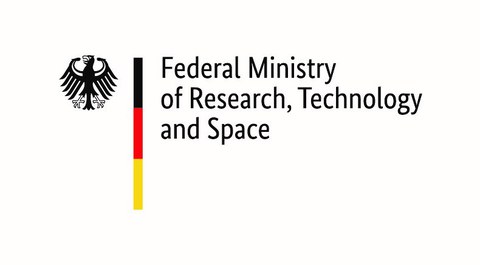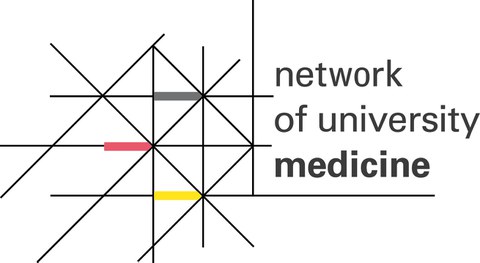Jul 02, 2025
01.07.2025: Launch of NUM 3.0

Prof. Dr. Martin Sedlmayr und Dr. Claudia Heine
01.07.2025: Launch of NUM 3.0 From crisis management to medicine of the future: new funding phase for the University Medicine Network
When the COVID-19 pandemic reached Germany, numerous research activities on the novel virus quickly developed. However, these remained largely isolated and fragmented. In order to coordinate clinical research at a national level and enable cross-site data exchange, the German university hospitals joined forces in April 2020 to form the Network University Medicine (NUM). On July 1, 2025, the NUM will seamlessly enter its third funding phase, which has been approved by the Federal Ministry of Research, Technology and Space (BMFTR) for a period of five years until December 31, 2030.
In the University Medicine Network (NUM), scientists from all 37 German university hospitals work together in interdisciplinary research projects and in nationwide research and data infrastructures. With the continuation, the NUM can continue to pursue its strategic goal of creating a standardized study and data space for clinical research in Germany. In addition, clinical projects with directly practice-relevant findings will be realized in order to better care for patients and manage future major crises in the field of public health. „Excellent, future-oriented medical research is inconceivable without digital transformation and cross-institutional collaboration. As the research infrastructure operator of the NUM, we are delighted with the BMFTR's decision to continue funding the network's pioneering projects and platforms,“ congratulates Prof. Dr. Esther Troost, Dean of the Faculty of Medicine.
Dresden University Medicine (HSMD), with the Faculty of Medicine at TU Dresden and the Carl Gustav Carus University Hospital, has been strongly represented in the network since the first NUM funding phase. The local NUM community now consists of 15 scientific and medical institutions from both institutions. The relevant research and infrastructure projects are managed and coordinated by the local NUM staff unit (LokS), which is based at the Center for Medical Informatics (ZMI) under Prof. Dr. Martin Sedlmayr and headed by Dr. Claudia Heine. "The NUM initiative is a key factor for Germany as a medical location in terms of pooling and jointly advancing innovative, academically initiated research. We are delighted to be able to make a significant contribution through our intensive involvement in the network," says Prof. Dr. Uwe Platzbecker, Medical Director of Dresden University Hospital.
Over the next five years, the HSMD will play a key role in the network's research, infrastructure and management line within NUM 3.0: The site is involved in eleven infrastructures (NUM-DIZ, National Study Network (NUM SN), Specialist Network Infections, Specialist Network Intensive Care Medicine, Specialist Network Stroke, NUKLEUS 3.0, NUM-SAR, RACOON, QS-MB, NATON 3.0, AKTIN 3. 0) and ten research projects (NUM4Rare, ENRICH, RAPID, ELEVATE, canTEN, RACOON AI Brain Tumor, RACOON COMPARE, RACOON INCLUDED, RACOON MARDER, RACOON PAIN), provides the (co-)spokespersons in four infrastructures and is leading the development of a registry for rare diseases (NUM4Rare).
With this commitment, the Dresden NUM players are making a significant contribution to the further development of university medicine and to strengthening Dresden as a research location. Prof. Dr. Sedlmayr emphasizes: "The NUM is a strong community that is growing into a central partner for multicentre medical research. Dresden University Medicine is a leading location with a high level of participation."
Background:
The Network University Medicine (NUM) was founded in April 2020 to coordinate clinical COVID-19 research across university medicine. Since then, researchers from all 37 German university hospitals have been working together on joint platforms in interdisciplinary research projects under the umbrella of the NUM. The network has established specialized research infrastructures for this purpose. These methodological, technical and organizational platforms are maintained in the NUM and can be used for a wide range of clinical research projects, for example to support data acquisition and data and biosample management for large, multicentre clinical trials. The aim is to establish the NUM as a central point of contact (“one-stop store”) for medical research and to return clinical research in Germany and Germany as a science and university location to the forefront of international research.
➡️ To the press release of the Technische Universität Dresden and the Faculty of Medicine with all Dresden project participations:
➡️ Further information on the NUM: https://www.netzwerk-universitaetsmedizin.de/
Contact:


